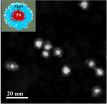INFORMATION:
About Insilico Medicine
Insilico Medicine is a Baltimore-based company utilizing advances in genomics and big data analysis for in silico drug discovery and drug repurposing for aging and age-related. The company is utilizing the GeroScope™ and OncoFinder™ packages for aging and cancer research. Through internal expertise and extensive collaborations with brilliant scientists, institutions, and highly credible pharmaceutical companies, Insilico Medicine seeks to discover new drugs and drug combinations for personalized preventative medicine. For more information on Insilico Medicine, Inc. please visit http://www.insilicomedicine.com.
Anti-aging researchers develop new algorithm that provides precision medicine for cancer patients
Method predicting targeted drug efficiency to be showcased at basel life science week
2015-08-07
(Press-News.org) For years chemotherapy has been one of most common methods of treating cancer, but it comes with the substantial drawback of effecting healthy cells in the same way that it effects cancerous cells. This means that a subject of chemotherapy can experience great pain and sickness as a side effect of the potentially lifesaving treatment. A solution to this problem is targeted therapy, or the use of drugs, which more specifically targets cancer cells while ignoring nearby healthy cells. Targeted therapy is dependent on drugs which are tailored to inhibited cancer cell growth, proliferation, and viability, by targeting proteins found in the cells.
As of yet targeted therapy has been for the most part a supplement to more traditional chemotherapy. It can be effective, but not enough to stand on its own. One problem that is holding back targeted therapy is that many patients respond to these drugs differently and a personalized treatment must often be created on a case-by-case basis. Traditional live testing - which relies on trial and error - has been inefficient in identifying which drugs work best for which patients, but computer software derived from big data analysis may be able to make this process more efficient, and increase the effectiveness of targeted therapy.
The Johns Hopkins Based Bioinformatics firm InSilico Medicine has developed an algorithm which has the potential to do just that. "The algorithm detects activation of intracellular regulatory pathways in the tumor in comparison to the corresponding normal tissues," said study author Artem Artemov. "It then predicts whether the drug can prevent cancer growth and survival in each individual case by blocking the abnormal, tumor promoting pathways."
To validate the effectiveness of the algorithm, it was tested against the predicted effectiveness of five drugs and seven different cancer types. The percentage that responded to the drug treatment displayed a significant correlation with the group that scored high on the algorithm, showing that this could be a quicker and more effective way to reach the same results.
"This could herald a big improvement in the quality of life of cancer patients as they undergo treatment," said Qingsong Zhu, Chief Operating Officer of InSilico Medicine, Inc. "The pain and sickness caused by chemotherapy has long been thought of as a necessary evil, but if we can more effectively tailor targeted therapy to the patient we can rely on it more than we already have. Targeted therapy may never replace chemo entirely, but we can move toward making it a bigger piece of the pie of cancer treatment, and allow patients to live more comfortable lives as they fight cancer."
The findings of this study will be presented at the 2015 Basel Life Science Week, a meeting of the minds on the cutting edge of life science held in Basel Switzerland from September 21st to the 24th as part of a forum on aging and drug discovery co-chaired by Alexander Zhavoronkov of Insillico Medicine and Bhupinder Bhullar of Novartis Pharmaceuticals.
ELSE PRESS RELEASES FROM THIS DATE:
New test measures effectiveness of treatments for Huntington's disease
2015-08-07
A new test developed by UBC researchers allows physicians to measure the effects of gene silencing therapy in Huntington's disease and will support the first human clinical trial of a drug that targets the genetic cause of the disease.
The gene silencing therapy being tested by UBC researchers aims to reduce the levels of a toxic protein in the brain that causes Huntington's disease.
The test was developed by Amber Southwell, Michael Hayden, and Blair Leavitt of UBC's Centre for Molecular Medicine and Therapeutics and the Centre for Huntington Disease in collaboration ...
Pouring fire on fuels at the nanoscale
2015-08-07
This news release is available in Japanese.
There are no magic bullets for global energy needs. But fuel cells in which electrical energy is harnessed directly from live, self-sustaining chemical reactions promise cheaper alternatives to fossil fuels.
To facilitate faster energy conversion in these cells, scientists disperse nanoparticles made from special metals called 'noble' metals, for example gold, silver and platinum along the surface of an electrode. These metals are not as chemically responsive as other metals at the macroscale but their atoms become more ...
Scientists adopt new strategy to find Huntington's disease therapies
2015-08-07
Scientists searched the chromosomes of more than 4,000 Huntington's disease patients and found that DNA repair genes may determine when the neurological symptoms begin. Partially funded by the National Institutes of Health, the results may provide a guide for discovering new treatments for Huntington's disease and a roadmap for studying other neurological disorders.
"Our hope is to find ways that we can slow or delay the onset of Huntington's devastating symptoms," said James Gusella, Ph.D., director of the Center for Human Genetic Research at Massachusetts General ...
Fermilab experiment sees neutrinos change over 500 miles
2015-08-07
Scientists on the NOvA experiment saw their first evidence of oscillating neutrinos, confirming that the extraordinary detector built for the project not only functions as planned but is also making great progress toward its goal of a major leap in our understanding of these ghostly particles.
NOvA is on a quest to learn more about the abundant yet mysterious particles called neutrinos, which flit through ordinary matter as though it weren't there. The first NOvA results, released this week at the American Physical Society's Division of Particles and Fields conference ...
Study looks at Google Glass to bring toxicology specialists to remote emergency rooms
2015-08-07
WORCESTER, MA -- Researchers at the University of Massachusetts Medical School have found that Google Glass, a head-mounted streaming audio/video device, may be used to effectively extend bed-side toxicology consults to distant health care facilities such as community and rural hospitals to diagnose and manage poisoned patients. Published in the Journal of Medical Toxicology, the study also showed preliminary data that suggests the hands-free device helps physicians in diagnosing specific poisonings and can enhance patient care.
"In the present era of value-based care, ...
Web-based patient-centered toolkit helps improve patient-provider communication
2015-08-07
Health care organizations have been implementing health information technology at increasing rates in an effort to engage patients and caregivers improve patient satisfaction, and favorably impact outcomes. A new study led by researchers at Brigham and Women's Hospital (BWH) finds that a novel web-based, patient-centered toolkit (PCTK) used by patients and/or their healthcare proxys in the hospital setting helped them to engage in understanding and developing their plan of care, and has the potential to improve communication with providers. The results of the study are ...
High-altitude climate change to kill cloud forest plants
2015-08-07
Australian scientists have discovered many tropical, mountaintop plants won't survive global warming, even under the best-case climate scenario.
James Cook University and Australian Tropical Herbarium researchers say their climate change modelling of mountaintop plants in the tropics has produced an "alarming" finding.
They found many of the species they studied will likely not be able to survive in their current locations past 2080 as their high-altitude climate changes.
The Wet Tropics World Heritage Area in Queensland, Australia is predicted to almost completely ...
Fish go deep to beat the heat
2015-08-07
A James Cook University study shows fish retreating to deeper water to escape the heat, a finding that throws light on what to expect if predictions of ocean warming come to pass.
JCU scientists tagged 60 redthroat emperor fish at Heron Island in the southern Great Barrier Reef. The fish were equipped with transmitters that identified them individually and signaled their depth to an array of receivers around the island.
The experiment monitored fish for up to a year and found the fish were less likely to be found on the reef slope on warmer days. Scientists think ...
Salt flat indicates some of the last vestiges of Martian surface water
2015-08-07
Mars turned cold and dry long ago, but researchers at the University of Colorado Boulder have discovered evidence of an ancient lake that likely represents some of the last potentially habitable surface water ever to exist on the Red Planet.
The study, published Thursday in the journal Geology, examined an 18-square-mile chloride salt deposit (roughly the size of the city of Boulder) in the planet's Meridiani region near the Mars Opportunity rover's landing site. As seen on Earth in locations such as Utah's Bonneville Salt Flats, large-scale salt deposits are considered ...
Ruxolitinib in polycythaemia vera: Hint of non-quantifiable added benefit
2015-08-07
Ruxolitinib (trade name: Jakavi) has been approved since March 2015 for the treatment of adults with polycythaemia vera, a rare disease of the bone marrow. It can be used when the drug hydroxyurea is ineffective or not tolerated. The German Institute for Quality and Efficiency in Health Care (IQWiG) examined in a dossier assessment whether this drug offers an added benefit over the appropriate comparator therapy.
According to the findings, ruxolitinib offers better relief of individual symptoms and improves quality of life. Dyspnoea and muscle cramps are more frequent, ...
LAST 30 PRESS RELEASES:
High risk of readmission and death among heart failure patients
Code for Earth launches 2026 climate and weather data challenges
Three women named Britain’s Brightest Young Scientists, each winning ‘unrestricted’ £100,000 Blavatnik Awards prize
Have abortion-related laws affected broader access to maternal health care?
Do muscles remember being weak?
Do certain circulating small non-coding RNAs affect longevity?
How well are international guidelines followed for certain medications for high-risk pregnancies?
New blood test signals who is most likely to live longer, study finds
Global gaps in use of two life-saving antenatal treatments for premature babies, reveals worldwide analysis
Bug beats: caterpillars use complex rhythms to communicate with ants
High-risk patients account for 80% of post-surgery deaths
Celebrity dolphin of Venice doesn’t need special protection – except from humans
Tulane study reveals key differences in long-term brain effects of COVID-19 and flu
The long standing commercialization challenge of lithium batteries, often called the dream battery, has been solved.
New method to remove toxic PFAS chemicals from water
The nanozymes hypothesis of the origin of life (on Earth) proposed
Microalgae-derived biochar enables fast, low-cost detection of hydrogen peroxide
Researchers highlight promise of biochar composites for sustainable 3D printing
Machine learning helps design low-cost biochar to fight phosphorus pollution in lakes
Urine tests confirm alcohol consumption in wild African chimpanzees
Barshop Institute to receive up to $38 million from ARPA-H, anchoring UT San Antonio as a national leader in aging and healthy longevity science
Anion-cation synergistic additives solve the "performance triangle" problem in zinc-iodine batteries
Ancient diets reveal surprising survival strategies in prehistoric Poland
Pre-pregnancy parental overweight/obesity linked to next generation’s heightened fatty liver disease risk
Obstructive sleep apnoea may cost UK + US economies billions in lost productivity
Guidelines set new playbook for pediatric clinical trial reporting
Adolescent cannabis use may follow the same pattern as alcohol use
Lifespan-extending treatments increase variation in age at time of death
From ancient myths to ‘Indo-manga’: Artists in the Global South are reframing the comic
Putting some ‘muscle’ into material design
[Press-News.org] Anti-aging researchers develop new algorithm that provides precision medicine for cancer patientsMethod predicting targeted drug efficiency to be showcased at basel life science week




